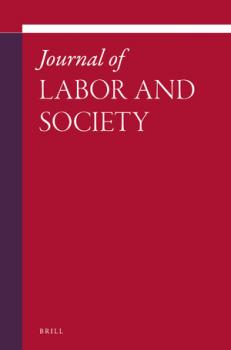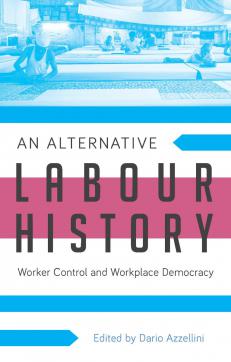Lucha de clases
Buggerru, Sardinia, Italy, 19 to 24 June 2024
3rd Labour Transfer Summer School: establishing links between research and labour activism

Call for participants
3rd Labour Transfer Summer School: establishing links between research and labour activism
Buggerru, Sardinia, Italy, 19 to 24 June 2024
Join us for the Third Labour Transfer Summer School, this year with a new enlarged and exiting programme and more vacancies for students and activists.
Presentazione del volume If Not Us, Who? Con Dario Azzellini, Lorenzo Feltrin e Anna Calori
Se non noi, chi? Lavoratori di tutto il mondo contro autoritarismo, fascismo e dittatura
Transform!Italia presenta il volume If Not Us, Who? della Fondazione Rosa Luxemburgc on il curatore Dario Azzellini e due degli autori, Lorenzo Feltrin e Anna Calori
Class Struggle from Above and from Below during the COVID-19 pandemic

Crises under capitalism, as historical analysis proves, tend to entail a transfer of wealth from the poor to the wealthy. Inequalities between poor and wealthy, between people of color and white people, between North and South and between genders are increasing. Most scholars will agree that this is also happening on a global level as a consequence of the handling of the covid-19 pandemic. However, there is a lot of disagreement regarding the evaluation of workers’ resistance.
über internationale selbstorganisierte Arbeitskämpfe
Interview Radio Corax: "The Class Strikes Back"

Wenn über Arbeitskämpfe gesprochen wird, dann geht es für gewöhnlich um Tarifverhandlungen und Warnstreiks - organisiert durch Großgewerkschaften wie die des DGB oder der CGT in Frankreich. Arbeitskampf kann aber auch anders aussehen - selbstorganisiert, fernab der Großgewerkschaften. Die Mittel selbstorganisierter Arbeitskämpfe sind radikaler. Betriebsbesetzungen, Blockadeaktionen und breite politische öffentliche Kampagnen die über die Sphäre der Arbeit hinaus gehen zählen zu den Mitteln selbstorganisierter Arbeitskämpfe.
You are missing some Flash content that should appear here! Perhaps your browser cannot display it, or maybe it did not initialize correctly.
Self-Organised Workers’ Struggles in the Twenty-First Century
The Class Strikes Back
The Class Strikes Back examines a number of radical, twenty-first-century workers’ struggles. These struggles are characterised by a different kind of unionism and solidarity, arising out of new kinds of labour conditions and responsive to new kinds of social and economic marginalisation. The essays in the collection demonstrate the dramatic growth of syndicalist and autonomist formations and argue for their historical necessity.
Video & Audio:
İşçi Denetimi ve İşyeri Demokrasisi
Emeğin Alternatif Tarihi
Konsey komünizmi, anarko-sendikalizm, İtalyan operaismo’su ve diğer “heretik” sol akımlar yoluyla Paris Komünü hakkındaki yazılarını izleyen “Emeğin Alternatif Tarihi”, şimdiye kadar görmezden gelinen tarihsel ve çağdaş otonom işçi hareketlerinin uygulama ve amaçlarını açığa çıkarmaktadır. Bu kitap, işçilerin işyerlerinde süreklilik ve öngörülebilirliği sağlayarak katılımcı demokrasinin anlatımı üzerinden kendi topluluklarını stabilize edebileceğini göstermektedir.
Worker Control and Workplace Democracy. An Alternative Labour History
Over the past 135 years, in all kinds of historical situations and during various political and economic crises and in different political systems, workers have taken control of their workplaces. Yet this story of workers self-administered production is rarely told. Capitalists, bourgeois governments and administrators of systems based on the exploitation of workers usually have little interest in disseminating the history of self-organized workers; those who have successfully run factories without bosses.
Вернуть себе фабрику: рабочий контроль при нынешнем кризисе
An Alternative Labour History: Worker Control and Workplace Democracy: chapter 2 in Russian

Перед вами отрывок из новой книги Дарио Аццелини «Альтернативная история труда: рабочий контроль и демократия на предприятии», недавно опубликованной издательством Zed.



























